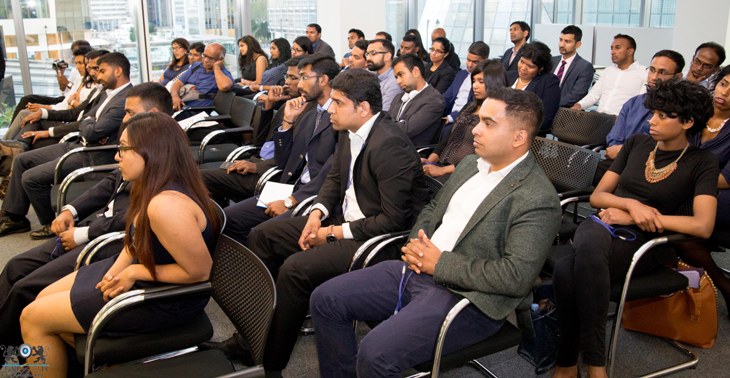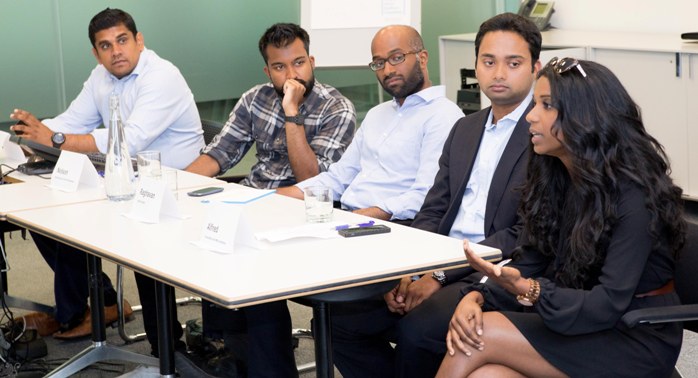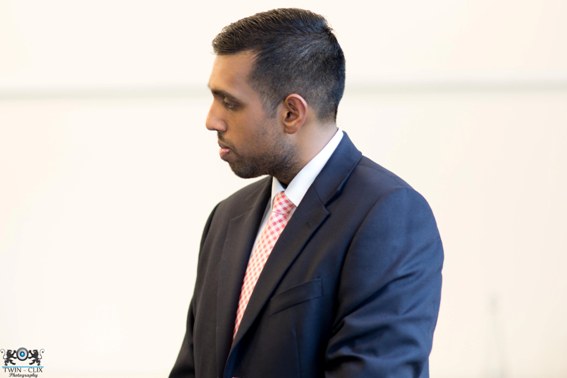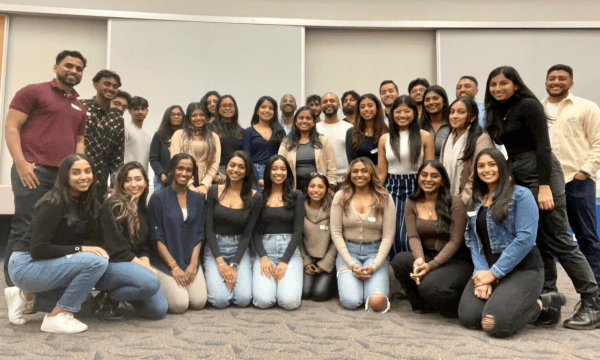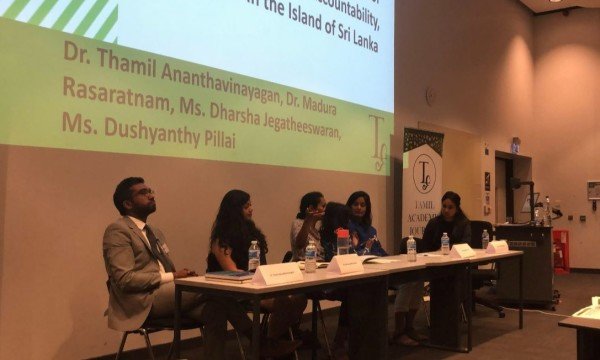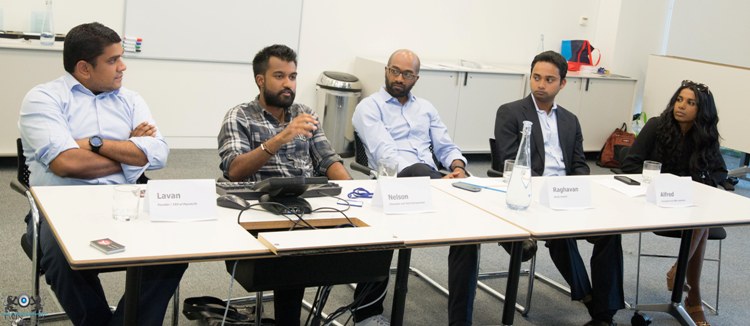
London, UK is home to one of the largest Tamil Diaspora populations in the West, encompassing Tamils of all origins and backgrounds. It's also a breeding ground for Tamil entrepreneurs and professionals who are rising up the ranks in their chosen careers. Ratheesan Yoganathan (Co-founder and Chairman of Lebara Ltd.) and Subaskaran Allirajah (Founder and Chairman of LycaMobile) are a few names that have built multi-million dollar companies based out of London. So it comes as no surprise that a few local professionals came together to create an organization that would connect, foster and celebrate those types of success stories and create more in the process.
Tamil Association of Professionals (TAP) was initiated in early 2012 and already has quite a few successful events under its belt - and they're just getting started. The volunteer run organization is driven by a group of 6 individuals. TAP's chair Karan Shanmugarajah states that their mutual interest in preserving the Tamil identity while improving the global connectedness and potential of the Tamil community is what brought them together.
Some of their past events have hosted individuals such as Cynthia Shanmugalingam, Founder and CEO of Kitchenette - an innovative, new food business start-up incubator and Dr. Raj Thamotheram - a globally-recognised thought leader on resilience and long-term investing, who is a co-founder and CEO of Preventable Surprises. At their latest event, a panel of young entrepreneurs shared their experiences and discussed the challenges facing entrepreneurs. Panellists included Nelson Sivalingam, Founder and CEO of One Minute London who has presented his company to big names like Sir Richard Branson . TC's own CEO, Shivanu Thiyagarajah, also had the pleasure of participating in their recent panel discussion on startups in the Tamil community.
Notwithstanding the presence of such high profile British Tamils, Karan Shanmugarajah, TAP’s Co-founder and Chairman says that the purpose of TAP is primarily around creating community and connectivity, not merely replicating stellar individual successes. TAP recognised early on that there is a difference between a community of successful individuals and a successful community and it is the latter that they are striving to build. As they expand, TAP hope to facilitate mentoring relationships between professionals at different stages of their careers and foster a tradition of service and mutual assistance. For TAP, being a professional is more than just the traditional medicine, engineering and accounting of their parents’ generation but incorporates the whole gamut of endeavours from the arts to entrepreneurship to the non-for-profit sector. TAP wants its members to dream both wide and high and aspire to succeed in fields and reach levels not previously imagined by the earlier generation, whose own struggle as immigrants to the West paved the way for today’s achievers.
Indeed for TAP, this is as much a vision for modern Tamil identity as it is a vision for a professional networking organisation. According to TAP it is in fostering a professionally connected and empowered Tamil community that celebrates its own internal diversity and gives back to its own and other communities that Tamil identity will continue to thrive as an integrated part of a globalised world.
In the future TAP looks to expand on the type of events they run and collaborate with organizations for Tamil professionals in other cities. If you would like to get involved with them, attend one of their events or find out more details check them out at TAPUK.org.




